MercoPress. South Atlantic News Agency
Tag: Federico Sturzenegger
-
Tuesday, August 1st 2017 - 07:06 UTC
Argentine Peso rises against the US dollar as Central Bank shows its muscle
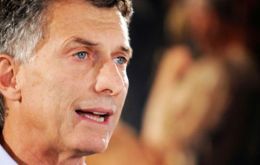
Argentina's Peso rose against the dollar on Monday for the first time in two weeks, after the central bank intervened in the foreign exchange markets on Friday to halt the currency's rapid decline to historic lows, when it reached 18 Pesos.
-
Wednesday, July 19th 2017 - 10:57 UTC
Argentina's central bank hikes interest rates to combat high inflation
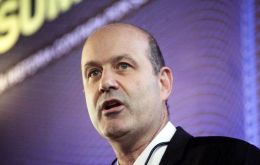
Argentina's central bank hiked interest rates on its short-term securities on Tuesday in its monthly auction, the second such increase in the past three months as it seeks to soak up pesos and rein in stubbornly high inflation.
-
Monday, October 24th 2016 - 17:43 UTC
Billions pour in to buy Argentine bonds, “sign of growing investor confidence”

Argentina’s international currency reserves rose above the landmark US$40 billion for the first time in three and a half years last Friday, as a huge inflow of dollars from government-issued debt and some exports over the last few days caused some dramatic increases this week. The milestone, according to Central Bank chief Federico Sturzenegger, was “a sign of growing investor confidence in the country.”
-
Thursday, June 9th 2016 - 09:16 UTC
Argentina's energy minister, the official with largest amount of funds abroad
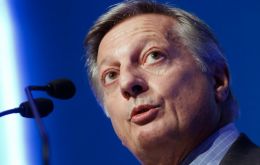
Almost 100 million pesos (approx US$ 7.3 million) are held in offshore accounts by officials from the current Argentine administration economic Cabinet, a figure higher than the 18 million pesos President Mauricio Macri reported as having in a Bahamas account.
-
Monday, May 16th 2016 - 07:25 UTC
Argentina's economy grows 0.8% during first quarter says Central bank

Argentina's economy grew 0.8% on the first quarter of the year compared to the same period last year, Central Bank Governor Federico Sturzenegger said, declaring that since President Mauricio Macri took office employment has remained “stable.”
-
Thursday, December 24th 2015 - 10:34 UTC
Argentina begins round of negotiations on prices; unions demanding bonus to counter inflation
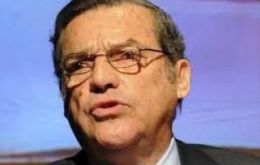
The Argentine government of president Mauricio Macri started a round of negotiations with big price setters as part of its bid to keep prices under control despite the recent devaluation of the peso. Domestic Trade Secretary Miguel Braun and Central Bank Governor Federico Sturzenegger met with the top representatives of the Argentine Chamber of Commerce (CAC) and representatives from medium-sized companies, who asked for cheap credit in exchange for the government’s goal of keeping prices in check.
-
Friday, December 11th 2015 - 11:54 UTC
International banks commit 8bn dollars to the new Argentine administration
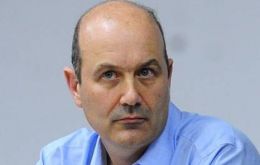
The incoming government of Argentine president Mauricio Macri is about to receive its first financial boost from overseas, which according La Nacion sources could be in the range of 8 billion dollars.
-
Thursday, December 10th 2015 - 08:22 UTC
Macri's candidate will head the Central bank from the first day; Vanoli resigns

Argentina Central Bank President Alejandro Vanoli resigned Wednesday under pressure from President-elect Mauricio Macri, who plans to remove currency controls with reserves standing at a nine-year low.
-
Wednesday, July 15th 2015 - 07:25 UTC
Argentina's congressional index reports 1.52% inflation in June, and 27.9% in twelve months
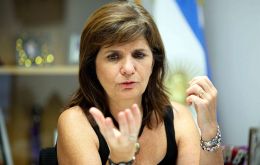
Inflation in Argentina clocked 1.53% in June accumulating 27.9% in the last twelve months according to the report released on Tuesday by members of the Congressional opposition based on an average from private consultants. This week Argentina's government stats office, Indec in scheduled to announce the official rate.
-
Wednesday, January 15th 2014 - 18:50 UTC
Argentine annual inflation: 28.38%, according to the Congressional index

Argentine annual inflation for 2013 was 28.38% after soaring 3.38% in the month of December alone, according to the Congressional consumer price index, which is a survey that takes the average of several consultancy firms.
